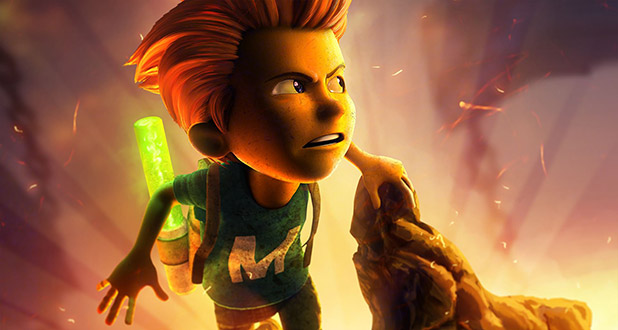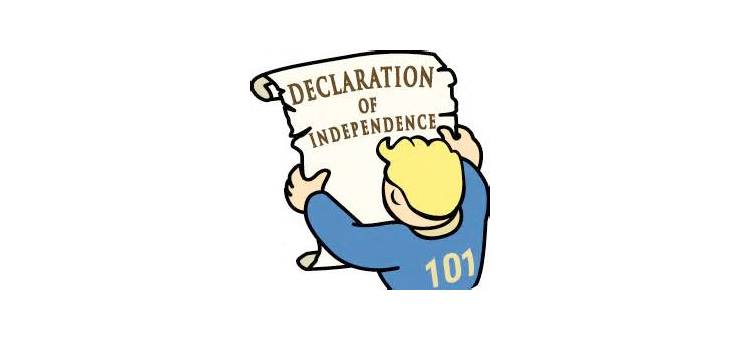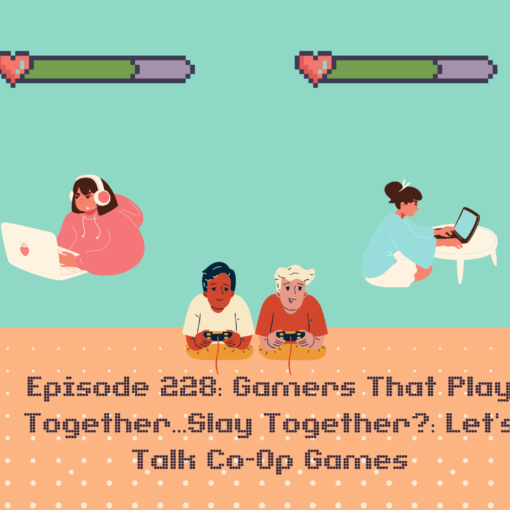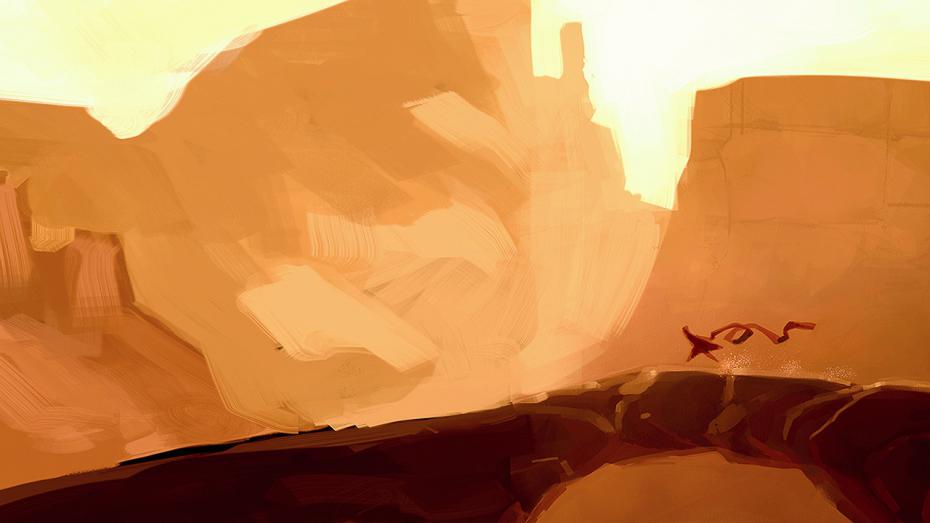Last week, Austin Walker wrote about endings over at Waypoint, focusing not only on literal game endings, but also on letting go. Preparing to return to the world can be a challenge, certainly; I’ve never come back from Trumbull Valley, for instance. But sometimes it’s all too easy to leave a world behind, even with some things unfinished, which I think is part of what Walker is getting at here (I’ll explain more below):
Instead of simply showing me a brief glimpse of the world after my hero has saved it, let me wander through it—or even just a part of it! Let me meet the old fish seller again, or check in on that bickering couple. Let me call up an old friend and get a drink, or catch up with that party member I lost at the end of Act 2. You’re so, so, so good at climaxes, video games. But I’d love to see a little more denouement.
A number of things seemed to have inspired Walker’s piece, from big games that require long commitments to reader/listener questions to a conversation at a conference with Michael Thomsen about the heavy focus (from critics and others) on video game scaffolding and onboarding materials and the lack of focus on ends. There’s no way to ease back in, to let go. No decompression.
I think for some of us that leads to a lack of desire to finish. I’ve thrown over many a main quest line halfway through in favor of side quests and exploration, so as to never lose that feeling of being part of a world, and I’m not alone in this — I’ve talked to many people who feel the same way. I’ve never made the connection before to poor post-climax finishes in games, but as I re-read Walker’s article, it makes sense. If you know the last bit is likely to be subpar, why partake? I’ll wander and pick flowers instead. (I mean, sure, it means the big crisis is ongoing, and maybe people are dying, but flowers.)
But I also think this trend of poor denouements is par for the video game course. In a way, it’s a capsule of all the other major arguments surrounding games: ludology/narratology, entertainment/art, and on and on. If games are meant to be just played as games, not stories or game-stories, then endings are less important. There’s no real action there – nothing to fight or investigate, because all that’s done. Slap on a quick cutscene, a montage, or some scrolling text and be done. Enter an empty world again if you want, but why would you? There’s always another game waiting. Too, if they’re consumer-driven, if the focus is only fun and not some higher sense of “art,” then storybeats again don’t matter as much, for the same reasons. Action and fantasy movies don’t linger on what comes after; why should games? It’s popcorn fluff.
I’m reminded of the Operative reminding Mal in Serenity that the better worlds created by people strong enough to make hard sacrifices aren’t for them. Perhaps that is part of what plays out here. After you’ve slaughtered hundreds, maybe thousands, are you fit for peace?
All of these possible reasons mean there’s little need to include strong story arcs, which come with the need for a strong ending, an ending that allows things to finish organically. Good stories sometimes mean slower development, and they mean character consistency — not predictability, because humans do wild things — but it’s hard to make mowing bad guys down by the dozens meaningful. Not that it can’t be done. It’s just hard, and game studios for the most part don’t privilege writers. It’s not high on the list of priorities.
In terms of character development and narrative arcs, Firewatch continues to be one of the best examples of strong story-in-game for me. An inciting incident drives the action; Henry develops; the story ends. It’s not a neat ending, because it’s a story of people. It’s messy and a little uncomfortable, depending on your story. But it ends. There’s not likely to be a sequel. This, too, leads games to abrupt severings; if things aren’t finished, there’s plenty of room for a sequel! And we know that’s important for the bigger franchises as a return on investment.
Perhaps another possibility is that good stories — which is how we get good endings, fully satisfying experiences — require more than familiar beats and tropes. Again, these can be meaningful, when deployed correctly, but often, they’re not. We need real people with concerns beyond I Am Hero/Anti-Hero Guy With Beard and Task. We need people from different backgrounds who are more than just their bodies. But if games are just entertainment, if they only exist for button-pushing and strategizing, then we don’t have to worry about all that. We can leave those pesky politics and realities at the door.
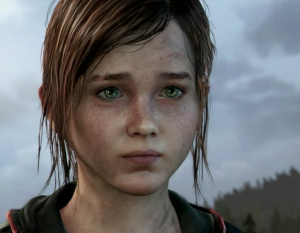 Imagine, at the end of The Last of Us, playing as Joel. Imagine if the ending had continued after the scene on the cliff. Imagine going down into the settlement and having random conversations with NPCs. Imagine going out into the world to live and quest. Can you? I both can and can’t. I can imagine how empty it would feel. I imagine it wouldn’t feel terribly impactful. Does this game need to ease you back out into the world? I don’t think so. For all my criticisms of TLoU over the years, the ending isn’t one of them. I don’t much like Joel’s actions, but how they are handled, narratively, is pretty strong. But notice your experience of this ending, after the initial waking moment in the car, is through Ellie, not Joel. Now imagine Ellie moving through that world, after everything. Imagine how she might be suspicious, even if she doesn’t want to be. Imagine her struggle, and then also his. That is a story… but it’s not a game story, or at least, not a story for a game like The Last of Us. It would end up just like the above… empty quests, empty feelings. Forced moments. Strange interactions. I’m sure it could be more, but where we are in games, now? We get a lot more of those awkward moments than we do the strong, narrative snaps back into reality.
Imagine, at the end of The Last of Us, playing as Joel. Imagine if the ending had continued after the scene on the cliff. Imagine going down into the settlement and having random conversations with NPCs. Imagine going out into the world to live and quest. Can you? I both can and can’t. I can imagine how empty it would feel. I imagine it wouldn’t feel terribly impactful. Does this game need to ease you back out into the world? I don’t think so. For all my criticisms of TLoU over the years, the ending isn’t one of them. I don’t much like Joel’s actions, but how they are handled, narratively, is pretty strong. But notice your experience of this ending, after the initial waking moment in the car, is through Ellie, not Joel. Now imagine Ellie moving through that world, after everything. Imagine how she might be suspicious, even if she doesn’t want to be. Imagine her struggle, and then also his. That is a story… but it’s not a game story, or at least, not a story for a game like The Last of Us. It would end up just like the above… empty quests, empty feelings. Forced moments. Strange interactions. I’m sure it could be more, but where we are in games, now? We get a lot more of those awkward moments than we do the strong, narrative snaps back into reality.
Most games aren’t The Last of Us. They’re not Firewatch, either. They’re the Mass Effects, the Zeldas, the Witchers that Walker talks about. They’re the Elder Scrolls, or they’re linear action games with firm endings, or endless cycles of multiplayer war, cycling through fights. The real endings, the final moments, they stick out. And I think there’s where we find Walker’s desire for something else. It’s because so few games end.
Games are still such a young form, particularly big, bold, immersive games, and they’ve expanded so far, so fast, and have become so expensive in order to meet expectations that we all barely get a handle on something before we’ve got to struggle toward the next plateau. We must innovate, we must be fresh and different, and everything has to shine. We have to give players options and extras and different ways to play. We have to make them feel they’ve gotten their money’s worth. And I don’t disagree with that, because games are expensive. But it means that we can’t have it all just yet. It means that somewhere, games will fall short. But I agree with Walker in that I don’t think it has to be here. I think if games are going to mix in story, it needs to be worth it, and stories need to make us feel like we (or the characters) have learned and changed (or refused to), and then we feel satisfied. This doesn’t preclude cliffhangers or setups for continuations; done well, those can leave us satisfied, too. But stories need certain elements to function, and in this, games have a lot of room yet for growth.

